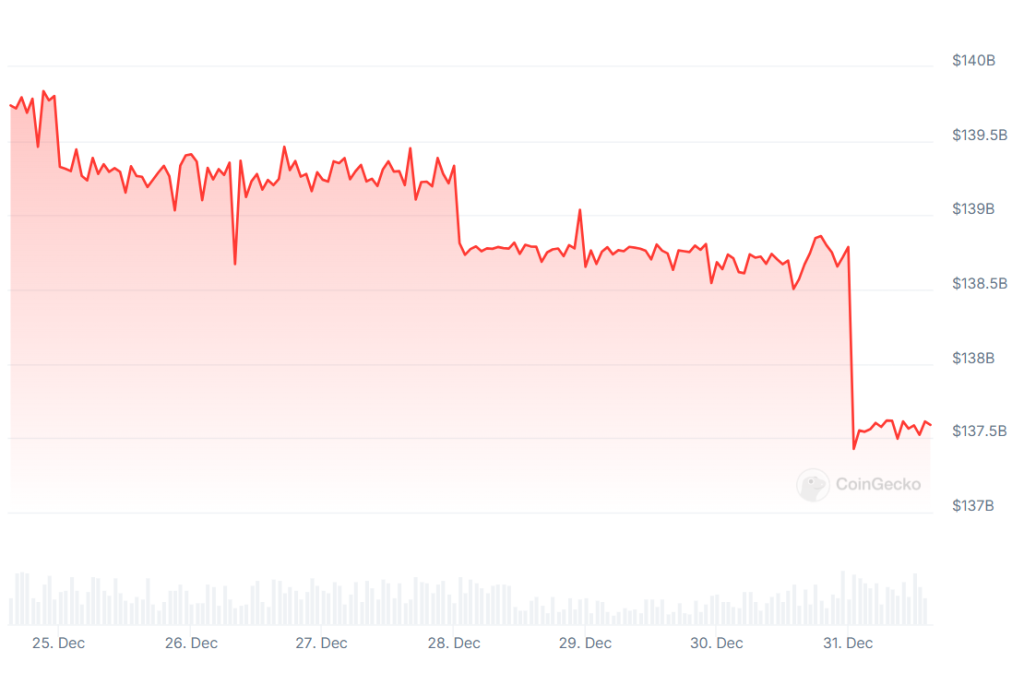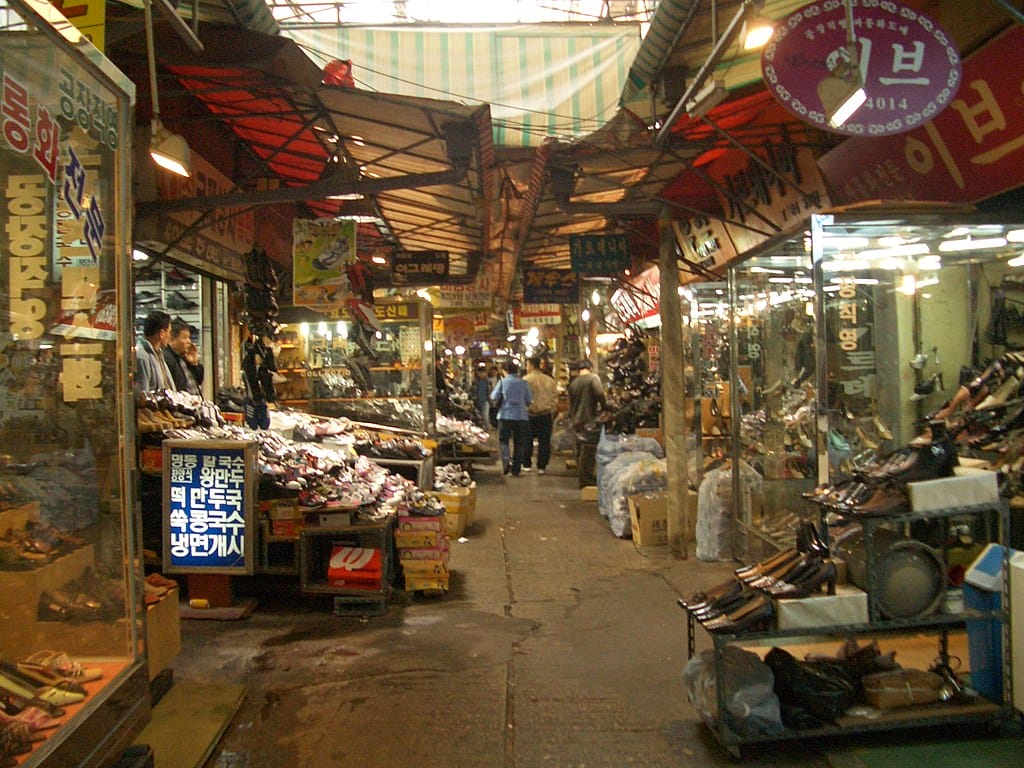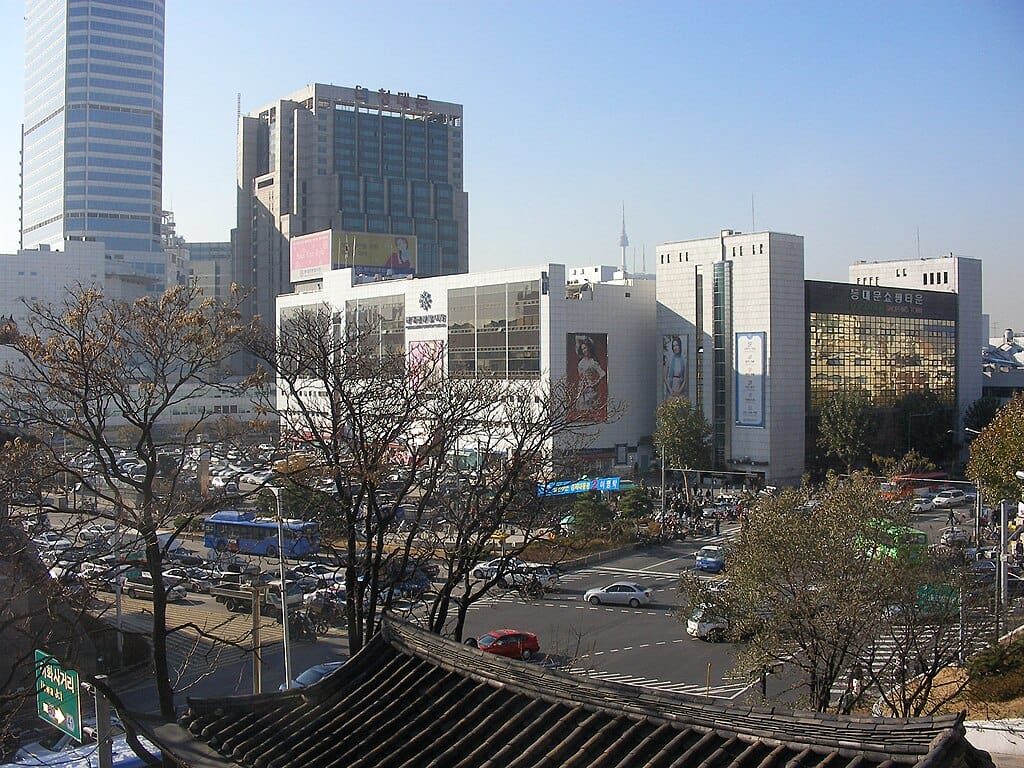Distributors at South Korea’s Dongdaemun Market say there isn’t a reality in reviews claiming they’re turning en masse to USDT funds.
At first of the month, reviews and crypto discussion board posters claimed that many merchants at Seoul’s most well-known vogue market have been utilizing the USD-pegged stablecoin as a fee software.
However a reporter from the South Korean media outlet Viewers wrote that the claims of mass USDT adoption on the market have been “removed from the reality.”
Dongdaemun Market Lukewarm on Tether?
In early December, posters on standard South Korean crypto boards claimed that “mass crypto adoption” was on its means after retailers at Dongdaemun began utilizing USDT for “worldwide transactions.”

A number of posters claimed that that they had seen distributors taking USDT funds and even paying for items utilizing Tether on the market.
The market, a collection of multi-story buildings in East-central Seoul, is a hotspot for vogue and textiles within the capital.
Comprised of 30 procuring malls and several other out of doors markets, in addition to wholesale markets, the world is especially standard amongst Chinese language buyers.
These embrace wholesale patrons who buy objects in South Korea for resale in Mainland China.
The reviews from earlier this month claimed that it was this group specifically that was driving USDT adoption, paying South Korean market distributors in Tether for his or her wholesale purchases.
On one standard thread, South Koreans wrote that “buddies who do enterprise with Chinese language clients “use USDT so much.”
One other claimed that they had “purchased objects” for USDT on the market, whereas others nonetheless claimed that “about 10%” of wholesale commerce on the market was now carried out utilizing USD-pegged stablecoins.
Nonetheless, Viewers reporter Hwang Bo-ram mentioned a number of distributors and merchants at Dongdaemun Market claimed that money, not crypto, continues to be their forex of alternative.

‘Nonetheless Too Early for Stablecoins’
Hwang wrote that whereas most of the people is changing into extra acquainted with stablecoins, “most of the interviewees” the media outlet spoke to mentioned it “continues to be too early to make use of them in actual transactions.”
However these similar interviewees “agreed” that it was “potential that stablecoins” may “join the traditional economic system with the world of blockchain sooner or later.”
The distributors hinted that money transactions, not like transactions on blockchain networks, are nearly untraceable.
Presumably for tax functions, many merchants seem eager to go away as little hint as potential of their transaction data.
Lee (given title withheld), a Dongdaemun-based males’s clothes dealer of 20 years, advised the media outlet:
“There have been tales about crypto adoption right here earlier than. However the actuality is, [stablecoins] should not used a lot out there, opposite to the reviews. Merchants are fairly change-averse. They usually hate abandoning proof of their transactions. That’s why most transactions are carried out in money right here.”

Age a Issue?
Lee mentioned there was one more reason distributors are nonetheless unsure about adopting stablecoins and Bitcoin (BTC). The seller defined:
“Dongdaemun retailers should not seemingly to make use of crypto in peer-to-peer transactions as a result of they have a tendency to make use of brokers to course of funds on their behalf. I don’t know what’s going to occur sooner or later. However I feel that almost all received’t use stablecoins in the meanwhile due to tax-related points.”
Park (given title additionally withheld), one other Dongdaemun-based vendor at “a medium-sized buying and selling firm that targets Chinese language clients,” mentioned:
“Most vogue merchants have been born within the Nineteen Fifties and Sixties, so I feel it’s [difficult for them] to make use of cryptocurrency.”
Regardless, it seems that there isn’t a smoke with out fireplace. In a December 24 article revealed in Weekly Dong-a, a number one mainstream media journal, a tech journalist wrote:
“Whereas cryptocurrencies have been primarily used for unlawful transactions up to now, they’ve lately been actively used within the import and export of basic items resembling clothes, textiles, and electronics.”
Dongdaemun Design Plaza in Jung-gu, central Seoul, is celebrating the return of the vacation season with its annual media artwork pageant, which drew as much as 620,000 guests final winter.https://t.co/1PEEc3PJ0o
— The Korea Herald 코리아헤럴드 (@TheKoreaHerald) December 19, 2024
Smartphone Funds on the Rise
The identical article additionally included the sub-headline “Cost with cryptocurrency at Dongdaemun Market.” This prefaced a bit on USDT and different stablecoins.
Myung-hee (surname withheld), a part-time worker at a well-liked Dongdaemun shopping center, advised Cryptonews.com:
“The stall I work out doesn’t settle for USDT or every other token. Nonetheless, I do see a whole lot of Chinese language clients paying utilizing their smartphones across the space, with native distributors accepting the funds on their very own handsets. I do not know if these are crypto transactions or not – I actually couldn’t say.”
Dongdaemun to broaden inexperienced belt to assist Seoul turn out to be future metropolis https://t.co/PD9MOY5uHv
— The Korea Instances (@koreatimescokr) October 24, 2023
One other writer claimed on December 23:
“In the event you go searching Dongdaemun, it’s simple to see Chinese language merchants or small import/export businesspeople paying with cryptocurrencies saved of their smartphone wallets as a substitute of {dollars}, yuan, or Korean received.”
USDT can be exceptionally standard in China and different BRICS nations, regardless of Beijing’s wide-ranging crypto crackdown.
In 2019, Chainalysis wrote that Tether “dominates in China.” It known as the stablecoin “the de facto fiat in Chinese language buying and selling.”
The publish South Korea: Dongdaemun Market Distributors Deny ‘USDT Pay Adoption’ Reviews appeared first on Cryptonews.











